Filter by
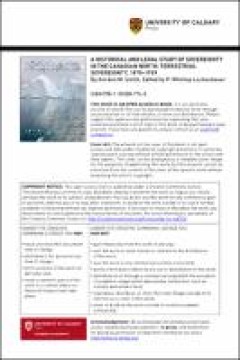
A Historical and Legal Study of Sovereignty in the Canadian North: Terrestria…
Gordon W. Smith, PhD, dedicated much of his life to researching Canada's sovereignty in the Arctic. A historian by training, his 1952 dissertation from Columbia University on "The Historical and Legal Background of Canada's Arctic Claims" remains a foundational work on the topic, as does his 1966 chapter "Sovereignty in the North: The Canadian Aspect of an International Problem," in R. St. J. M…
- Edition
- Ed. 1
- ISBN/ISSN
- 9781552387740, 9781552387740
- Collation
- 512
- Series Title
- Northern Lights
- Call Number
- 920 HIS h

Interactive Peacemaking A People-Centered Approach
This book examines the theory and practice of interactive peacemaking, centering the role of people in making peace. The book presents the theory and practice of peacemaking as found in contemporary processes globally. By putting people at the center of the analysis, it outlines the possibilities of peacemaking by and for the people whose lives are touched by ongoing conflicts. While considerin…
- Edition
- -
- ISBN/ISSN
- 9781000551884
- Collation
- -
- Series Title
- -
- Call Number
- -
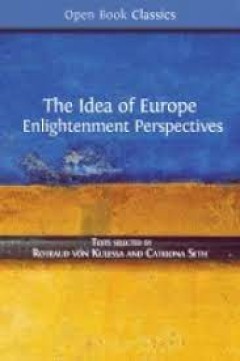
The Idea of Europe: Enlightenment Perspectives
"In view of the challenges—many of which are political—that different European countries are currently facing, scholars who work on the eighteenth century have compiled this anthology which includes earlier recognitions of common values and past considerations of questions which often remain pertinent nowadays. During the Enlightenment, many men and women of letters envisaged the continent�…
- Edition
- -
- ISBN/ISSN
- 9781783743780
- Collation
- -
- Series Title
- -
- Call Number
- -
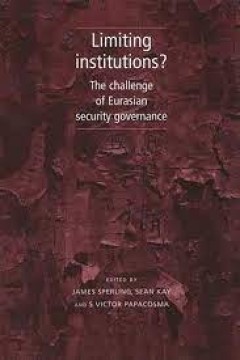
Limiting institutions?: The challenge of Eurasian security governance
Limiting Institutions examines the security threats in Eurasia and the role of institutions in the post-Cold War international environment. It looks at both the crucial aspect of foreign policy as well as a theoretical area of security studies and its impact in the former Soviet States including Russia, Belarus, Armenia, the Ukraine and Moldova. The first section addresses the important and var…
- Edition
- -
- ISBN/ISSN
- 9780719066047
- Collation
- -
- Series Title
- -
- Call Number
- -
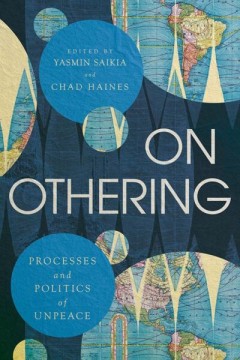
On Othering Processes and Politics of Unpeace
In every sphere of life, division and intolerance have polarized communities and entire nations. The learned construction of the Other—an evil “enemy” against whom both physical and discursive violence is deemed acceptable—has fractured humanity, creating divisions that seemingly defy reconciliation. How do we restore the bonds of connection among human beings? How do we shift from pola…
- Edition
- -
- ISBN/ISSN
- 9781771993876
- Collation
- -
- Series Title
- Global Peace Studies
- Call Number
- 6 x 9, 360 pages

Imperfection
Known for his exploration of the relationship between Buddhism and violent ethnic conflict in modern Sri Lanka, as well as his contribution to the study of Northern Ireland and the complex relationships among religion, literature, and ethnicity, Grant provides the reader with an analysis of the widespread rise of religious extremism across the globe. Referencing Plato, Van Gogh, Jesus, and the …
- Edition
- -
- ISBN/ISSN
- 9781926836751.01
- Collation
- -
- Series Title
- Cultural Dialectics
- Call Number
- 240 pages
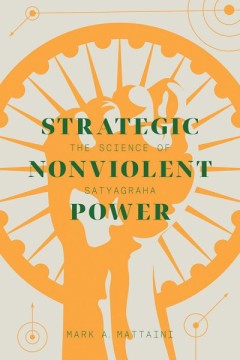
Strategic Nonviolent Power The Science of Satyagraha
Strategic Nonviolent Power proposes that the route to what Gandhi described as the “undreamt of and seemingly impossible discoveries” of nonviolent resistance is the application of rigorous science. Although not a simple science, Mattaini’s application of ecological science grounded in the science of behaviour brings exceptional power to the struggle for justice and liberation. At a time …
- Edition
- -
- ISBN/ISSN
- 9781927356418.01
- Collation
- -
- Series Title
- -
- Call Number
- 328 pages
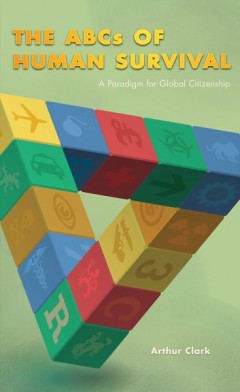
ABCs of Human Survival A Paradigm for Global Citizenship
The ABCs of Human Survival examines the effect of militant nationalism and the lawlessness of powerful states on the well-being of individuals and local communities―and the essential role of global citizenship within that dynamic. Based on the analysis of world events, Dr. Arthur Clark presents militant nationalism as a pathological pattern of thinking that threatens our security, while empha…
- Edition
- -
- ISBN/ISSN
- 9781897425688.01
- Collation
- -
- Series Title
- -
- Call Number
- 280 pages

Imperfection
Known for his exploration of the relationship between Buddhism and violent ethnic conflict in modern Sri Lanka, as well as his contribution to the study of Northern Ireland and the complex relationships among religion, literature, and ethnicity, Grant provides the reader with an analysis of the widespread rise of religious extremism across the globe. Referencing Plato, Van Gogh, Jesus, and the …
- Edition
- -
- ISBN/ISSN
- 9781926836751.01
- Collation
- -
- Series Title
- Cultural Dialectics
- Call Number
- 240 pages
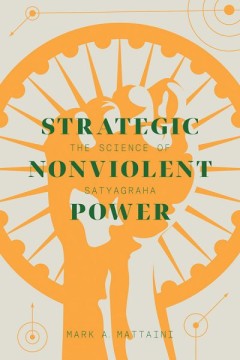
Strategic Nonviolent Power The Science of Satyagraha
Strategic Nonviolent Power proposes that the route to what Gandhi described as the “undreamt of and seemingly impossible discoveries” of nonviolent resistance is the application of rigorous science. Although not a simple science, Mattaini’s application of ecological science grounded in the science of behaviour brings exceptional power to the struggle for justice and liberation. At a time …
- Edition
- -
- ISBN/ISSN
- 9781927356418.01
- Collation
- -
- Series Title
- Global Peace Studies
- Call Number
- 328 pages
 Computer Science, Information & General Works
Computer Science, Information & General Works  Philosophy & Psychology
Philosophy & Psychology  Religion
Religion  Social Sciences
Social Sciences  Language
Language  Pure Science
Pure Science  Applied Sciences
Applied Sciences  Art & Recreation
Art & Recreation  Literature
Literature  History & Geography
History & Geography